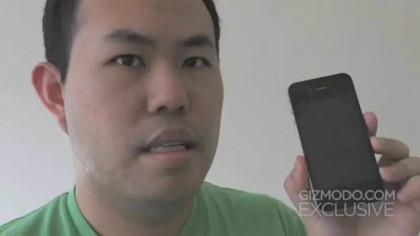Has Apple sold out?
From Antennagate to suicidal subcontractors, Apple can't seem to do anything right
Hindsight is a wonderful thing, of course, but Steve Jobs was right and everyone else was wrong. The lukewarm critical response to the iPad hasn't stopped it being a runaway success, and there will no doubt be similar criticisms of whatever iOS device Apple comes up with next.
Rather than playing things safe, sitting back and letting the money roll in, Jobs has risked the company again and again. He doesn't always get it right, of course, but when he does the results are spectacular – and spectacularly profitable. If you had his track record, you might be a bit cocky too.
Of course, there's a difference between being a bit cocky and being dismissive of your customers. Antennagate, as the iPhone 4 controversy was dubbed, had many pundits suggesting that Apple was shipping a product it knew to be defective.
Bloomberg alleged that Jobs overruled concerns about poor reception, while the New York Times quoted an unnamed insider who claimed that there was a long-standing weakness in the iPhone software. Jobs called the first story "a crock" and the latter "total bullshit".
Apple making a PR mistake is one thing, but the idea that Steve Jobs overruled everyone at Apple to release a flawed iPhone seems a bit of a stretch.
It might be possible if Jobs were running Apple single-handedly, but he isn't. Jobs is hands-on in the design, marketing and legal bits of Apple, but the job of actually running Apple falls on Tim Cook – a man who, like Jobs, is famed for his attention to detail and has been hailed as a "genius" by the press.
In that company, the idea of Steve Jobs as a loose cannon among yes-men, a CEO whose executives are letting him destroy the very firm he saved from near-death, doesn't make any sense.
Sign up for breaking news, reviews, opinion, top tech deals, and more.
Another reason for incongruity is that, despite all the bad publicity, there's nothing seriously wrong with the iPhone. Even with signal issues, it has the best reception – and customer satisfaction – of any iPhone ever made and a lower return rate than the iPhone 3GS.
As Guy Kawasaki, business guru, venture capitalist, co-founder of Alltop.com and former Apple Evangelist and Apple Fellow told us on the eve of Apple's news conference, "If I were Apple, I would give anyone who wanted one a free bumper. And let people return their phones if they don't like them because there are plenty of people who would love to buy a refurbished iPhone 4."
And that's exactly what Apple did. "We're human," Steve Jobs says. "We make mistakes." He's right about that.
Apple's chaotic and contradictory approach to App Store approvals generated yet more bad PR when swimsuit catalogues were blocked but Playboy wasn't, and when fart apps got through but Pulitzer prize-winning cartoonists didn't.

DOUBLE STANDARDS?: Apple censors apps with too much flesh on show, but allows Playboy in – how so?
However, such issues appear to be the result of the strain of big numbers rather than bad faith: the App Store went from 500 apps to 65,000 in a year and 225,000 in two years. We can't imagine any firm handling that kind of growth without making the odd mis-step.(Apple has since relaxed its App Store rules.)
Not all Apple censorship is accidental, of course. Jobs has gone on the record saying that he doesn't want to see pornography on iOS devices, and Adobe could tell you a thing or two about falling out of favour with Apple.
However, while the anti-flesh bans in the App Store haven't been consistent and some of Apple's behaviour towards Adobe has seemed a bit playground, Apple isn't locking down Safari or installing chips to prevent you jailbreaking your phone, as Motorola seems to have done with its latest Droid phone.
Apple's row with Adobe over Flash does appear to be based largely on Flash's woeful performance and Apple's fear of losing control, rather than Apple trying to bully another firm. "We didn't want to get into any business where we didn't own or control the primary technology – because if someone else owns it, they're going to beat you in the end," Jobs says. Put simply, Apple doesn't want to lose control of apps.
Demoralising jobs
Could Apple's use of Foxconn, the subcontractor whose factories have seen unusual suicide patterns, be another mistake? Despite Steve Jobs' comments that it can't be a sweatshop (because "they've got restaurants and movie theatres and hospitals and swimming pools. For a factory, it's pretty nice"), there's clearly something unpleasant going on.
According to advocacy group SACOM, in May Foxconn employee Yan Li died of exhaustion after a 34-hour shift; a recent Bloomberg report describes demoralised employees breathing in dangerous fumes, banned from talking and made to stand for 12-hour shifts with bathroom breaks limited to 10 minutes every two hours; and Foxconn security guards have beaten up journalists and have been filmed beating up employees.
Jobs' comments suggest that, at least in this instance, the Reality Distortion Field is in full effect – Foxconn is regularly accused of bad things, and Apple promised to investigate it in 2006 after allegations that Foxconn broke Chinese labour laws by forcing employees to work 80+ extra hours per week – but Apple's probably being picked on unfairly too.
Foxconn's client list reads like a who's who of technology, so why aren't people asking why Microsoft, Dell, Sony, Amazon and Nokia aren't stopping the suicides? Foxconn makes their stuff too. But then, none of those companies generate the newspaper sales and website hits Apple does.

A STEP TOO FAR?: Gizmodo's Jason Chen had his apartment raided in the iPhone 4 prototype scandal
The most dramatic allegation levelled at Apple involves Gizmodo, which paid thousands of dollars for a stolen iPhone 4 prototype. When the site went public and published photos, police turned up at writer Jason Chen's door, smashed it down and confiscated his computers and gadgets. Apple didn't break down the door – the Rapid Enforcement Allied Computer Team (REACT) did that – but Apple is on REACT's steering committee.
Not only that, journalists are supposed to be exempt from the kind of warrant REACH used to enter Chen's house. Indeed, the Electronic Frontier Foundation thinks something stinks, suggesting that REACT members were "putting the presumed interests of an important local company before the rights guaranteed by law".
Speaking of newspeak
If Apple had a tame police force smashing down doors and confiscating journalists' computers on command then that would be worrying, to say the least.
However, Gizmodo's Chen isn't a journalist in the officially accepted, accredited sense, therefore the search warrant may have been entirely legal – and let's not forget that Apple is just one of 25 different companies on the REACT committee including the likes of Symantec, Microsoft and Adobe.
We don't recall anyone accusing Symantec of having a tame police force when REACT broke up a Norton Antivirus counterfeiting ring four years ago, or of anyone calling Adobe and Microsoft Big Brother when they asked REACT to investigate Craigslist software sellers just last year.
"We're not perfect," Steve Jobs says. The truth is, Apple never has been: today it's being criticised over the iPhone 4, and 10 years ago it was being criticised over the G4 Cube.
What has changed, though, is Apple's profile. When Apple was an underdog, Steve Jobs could have gone around kicking puppies and nobody would have cared. Now that Apple is the king of column inches, more valuable than Microsoft and the most talked-about technology firm on the planet, minor criticisms make major stories.
That's just the way it works. Has Apple lost it? A few seconds with an iPad suggests not only that Apple still has it, but that it's the only firm in technology that even knows what 'it' is.
We think Guy Kawasaki put it best when he told us: "When you're the biggest, best-looking gorilla, the target on your back is the biggest too. This comes with the territory."

Contributor
Writer, broadcaster, musician and kitchen gadget obsessive Carrie Marshall has been writing about tech since 1998, contributing sage advice and odd opinions to all kinds of magazines and websites as well as writing more than twenty books. Her latest, a love letter to music titled Small Town Joy, is on sale now. She is the singer in spectacularly obscure Glaswegian rock band Unquiet Mind.